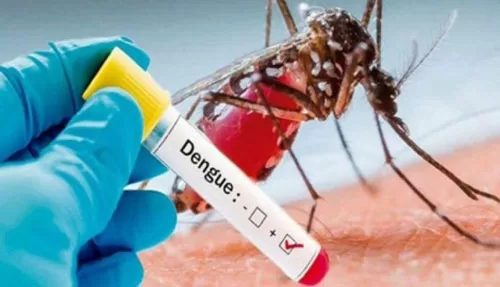In a world where viral infections are increasingly challenging and the quest for effective treatments often seems like a race against time, a new glimmer of hope has emerged. Johnson & Johnson, a global powerhouse in healthcare, has announced positive results from a clinical trial of their novel antiviral pill for dengue fever.
Currently, there are no specific treatments for dengue, a disease that wreaks havoc primarily in Asia and Latin America. However, JNJ-1802, the experimental antiviral pill by Johnson & Johnson, demonstrated promising results in its small human challenge trial.
In this trial, ten healthy volunteers were intentionally exposed to the dengue virus after being administered the pill five days prior. Remarkably, six out of these ten showed no traces of the virus in their blood over an 85-day monitoring period, nor did their immune systems respond to the infection. This data suggests that JNJ-1802 could potentially prevent the virus from taking hold in the first place.
The Dengue Threat
Dengue fever is a significant global health threat, particularly in certain regions of Asia and Latin America. The disease, which is spread through the bites of infected female mosquitoes, sees around 400 million infections annually, leading to approximately 40,000 deaths.
As climate change expands the range of these mosquitoes, the spread of diseases like dengue, Zika, and yellow fever could potentially increase. The development of an antiviral pill can be a significant weapon in the fight against such infectious diseases.
The Road Ahead
The positive results from this small trial will encourage the continuation of Phase II trials in real-world settings where dengue is prevalent. Johnson & Johnson plans to further test the drug as a potential treatment. However, ensuring access to the new drug, especially in low- and middle-income countries where dengue is most prevalent, is a challenge that needs addressing.
Read More: Malala Condemns Gaza Hospital Bombing, Offers Aid to Palestinians
Johnson & Johnson has acknowledged this concern and expressed its commitment to addressing it. The development of this antiviral pill for dengue fever is undeniably a significant advancement in the field of infectious diseases.
It offers hope to millions affected by dengue each year and highlights the potential of antiviral therapies for the treatment and prevention of other viral infections. But it’s also a reminder of the extensive road that lies ahead, where further research, larger clinical trials, and robust logistical and regulatory frameworks will be necessary before the drug can be approved for widespread use.
Johnson & Johnson’s experimental antiviral pill for dengue fever is showing promise in a small human challenge trial. This development could potentially be a game-changer in the battle against a disease that affects millions in Asia and Latin America. As the world faces increasing challenges from viral infections, this breakthrough offers a glimmer of hope for the future.
In the trial, ten healthy volunteers were intentionally exposed to the dengue virus after taking the antiviral pill. Astonishingly, six of them showed no signs of the virus in their blood over an 85-day period, and their immune systems did not react to the infection. Dengue fever is a significant global health threat, causing millions of infections and tens of thousands of deaths each year. With climate change expanding the range of disease-carrying mosquitoes, the need for effective treatments is more critical than ever.













